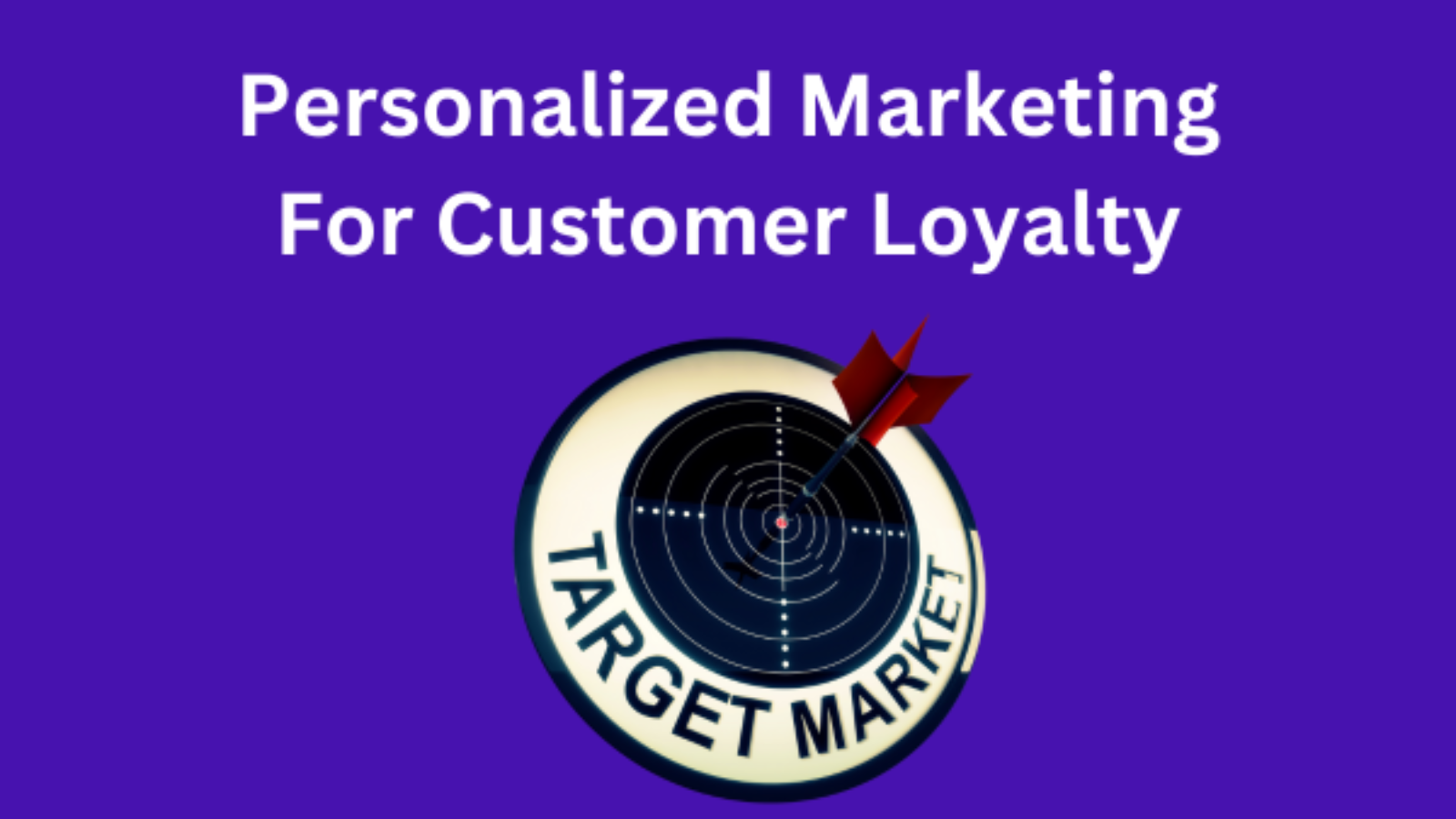1. Introduction
In today’s competitive market, capturing and retaining customer loyalty has become increasingly challenging. However, a powerful strategy has emerged to address this issue: personalized marketing. According to a recent study, 80% of consumers are more likely to make a purchase when brands offer personalized experiences. This statistic underscores the significant impact personalized marketing can have on customer engagement and loyalty. But what exactly is personalized marketing, and how can it be leveraged to foster deeper connections with customers?
2. Identifying Customer Pain Points
Understanding the Disconnection
Customers today are inundated with generic advertisements and marketing messages that often miss the mark. This barrage of irrelevant content can create a sense of disconnect between the consumer and the brand. For instance, receiving an email promotion for a product they have no interest in can be frustrating and lead to a negative perception of the brand.
The Impact of Generic Marketing
When marketing efforts lack personalization, they fail to resonate with the audience, leading to several issues:
- Frustration and Annoyance: Customers feel overwhelmed by irrelevant content.
- Decreased Engagement: Lack of relevance results in lower engagement rates.
- Loss of Loyalty: Customers may turn to competitors who better understand their needs and preferences.
3. Presenting the Solution: Personalized Marketing
What is Personalized Marketing?
Personalized marketing is a strategy that leverages customer data to deliver tailored content, offers, and communications to individual customers based on their preferences, behaviors, and past interactions with the brand. This approach ensures that the marketing messages are relevant and meaningful to each customer.
How It Works
Personalized marketing employs various methods and tools to gather and analyze customer data. Some key components include:
- Data Analytics: Collecting and analyzing data from multiple sources such as purchase history, browsing behavior, and social media interactions.
- Customer Segmentation: Dividing the customer base into distinct segments based on common characteristics and behaviors.
- AI-Driven Recommendations: Utilizing artificial intelligence and machine learning to predict customer preferences and deliver personalized content and offers.
4. The Benefits of Personalized Marketing
Enhanced Customer Experience
One of the primary benefits of personalized marketing is the enhanced customer experience it provides. When customers receive content and offers that align with their interests and needs, they feel valued and understood. This leads to a more enjoyable and satisfying interaction with the brand.
Increased Engagement and Loyalty
Personalized marketing fosters higher customer engagement by delivering relevant and timely messages. When customers receive content that resonates with them, they are more likely to interact with the brand, whether it’s through opening emails, clicking on ads, or making purchases. Over time, this increased engagement translates into stronger customer loyalty.
Higher Conversion Rates
Personalization drives higher conversion rates by presenting customers with the right message at the right time. For example, a personalized email offering a discount on a product that a customer has shown interest in is more likely to result in a purchase than a generic promotion. By aligning marketing efforts with customer preferences, brands can significantly boost their conversion rates.
5. Proof Point: Case Studies and Success Stories
Case Study 1: Amazon’s Personalized Recommendations
Amazon is a prime example of a company that has successfully implemented personalized marketing. The e-commerce giant uses sophisticated algorithms to analyze customer behavior and recommend products based on their browsing and purchase history. This personalized approach has been a key driver of Amazon’s success, contributing to higher customer satisfaction and loyalty. According to a report, personalized recommendations account for 35% of Amazon’s total sales.
Case Study 2: Starbucks’ Personalized Offers
Starbucks has also embraced personalized marketing through its rewards program and mobile app. By analyzing customer purchase history and preferences, Starbucks sends personalized offers and recommendations to its customers. For instance, a customer who frequently orders lattes might receive a discount on their next latte purchase. This personalized approach has helped Starbucks increase customer engagement and drive repeat business.
Case Study 3: Netflix’s Content Personalization
Netflix uses personalized marketing to enhance the user experience by recommending shows and movies based on individual viewing habits. By leveraging data analytics and machine learning, Netflix tailors its content suggestions to each user, making it easier for them to find content they enjoy. This personalization has been instrumental in retaining subscribers and keeping them engaged with the platform.
6. Conclusion
Personalized marketing is not just a trend; it’s a powerful strategy that can drive customer loyalty and business growth. By addressing the common pain points of generic marketing and leveraging data to deliver tailored experiences, brands can enhance customer satisfaction, increase engagement, and boost conversion rates. The success stories of companies like Amazon, Starbucks, and Netflix highlight the significant impact personalized marketing can have on customer loyalty.
Looking to elevate your brand’s marketing game? Start implementing personalized marketing today to build stronger connections with your customers and drive loyalty. If you’re unsure where to begin, consider scheduling a free consultation with our team of experts. We’ll help you develop a personalized marketing strategy tailored to your business needs and goals. Don’t miss out on the opportunity to enhance your customer experience and drive long-term success. Contact us today to get started!
By integrating personalized marketing into your overall strategy, you can create more meaningful interactions with your customers, fostering loyalty and driving business growth. Embrace the power of personalization and watch your brand thrive in today’s competitive market.

